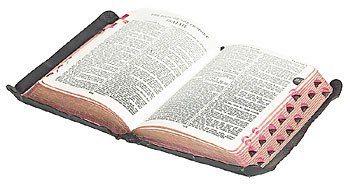The first night of Passover, known as the Jewish festival of
freedom, begins Monday night, April 2, and continues until April
10. (Some Jews observe the holiday for 8 days; liberal traditions
and Jews in Israel observe it 7 days).
The first night of Passover, known as the Jewish festival of freedom, begins Monday night, April 2, and continues until April 10. (Some Jews observe the holiday for 8 days; liberal traditions and Jews in Israel observe it 7 days). This festival remembers the Exodus, when Jewish belief is that God freed the Hebrew people from their slavery in the land of Egypt.
The holiday begins with a ritual meal, called a “seder,” during which the story of the liberation is told. Through the story telling, Jews are taught to celebrate the holiday as if they were slaves themselves – as if these events not only happened to their ancestors, but also as if they were slaves in Egypt and they were themselves freed. By placing themselves with their ancestors in their slavery, they can better appreciate what freedom means.
“In 2007, when only 47 percent – less than half of the countries in the world – are considered free, this is an especially poignant lesson,” said Debbie Israel, Acting Rabbi of Congregation Emeth, the only synagogue in South County. “The story of the struggle of a people who are transformed from slavery into a free nation resonates today as a powerful lesson for our times. At our congregational seder on April 3, we will especially be reflecting on this theme.”
The Exodus story took place some 3,000 years ago, when Israelites who were enslaved in Egypt were rescued by God’s intervention and followed a shepherd named Moses to freedom in the wilderness and eventually into the Promised Land.
The Passover seder is ordained in the Hebrew Bible: “And you shall tell your child on that day.” These meals take place both in private homes and in synagogues.
Ancient traditions are open to local (and family) variations. In preparation for the festival, many families clear from their homes “hametz,” which literally means “leavening,” and refers to foods that contain grain derivatives, specifically wheat, rye, barley and oat. Any food that is made of grain and water that has been allowed to ferment and rise is prohibited, such as bread, cereal, cake, cookies, pizza, pasta and beer. To make sure that no grains are accidentally in the foods, many families use special dishes and cooking utensils which are stored away the rest of the year.
On the seder table is placed a special plate which usually has separate indentations or compartments for the ceremonial foods of this meal. Each has its own significance, intended to remind the participants of the bitter experience of slavery.
“The seder is unique because everyone is an equal participant. Children are a special focus,” Israel said. “In fact, near the beginning of the seder the youngest child present is encouraged to ask questions. Four questions are included to help children observe that this night is different, and to teach them all of the ways it is different. Following their ritual questions, they are encouraged to continue asking questions throughout the seder.”
Every seder table includes three pieces of “matzah,” an unleavened, flat, cracker-like bread known as the “bread of affliction.” It dates from when the Jews fled Egypt, a departure so sudden that the bread they had been preparing had no time to rise, forcing them to bake the dough into hard crackers in the desert sun.
During the seder, four glasses of wine are poured to represent God’s four promises to the Israelites. A fifth cup of wine is poured and left on the table, an offering for the prophet Elijah. A special book is read during the meal, the Haggadah, meaning “the telling.” It features a retelling of the Exodus story so that the miraculous events will be remembered, especially the plagues which were unleashed upon the Egyptians to persuade Pharaoh to let the Hebrews leave, including blood, frogs, vermin, flies, blight, boils, hail, locusts and darkness.
After each plague, Pharaoh bid them leave, then changed his mind and commanded them to stay. The final plague killed the first-born of each Egyptian family and their beasts, but the Jews were spared by marking their homes with lambs’ blood. The angel of death “passed over” their homes, giving the holiday its name (“Pesach” in Hebrew).
Congregation Emeth will hold a Community Seder for its members and guests on the second night of Passover. Since it is customary to invite anyone who does not have a place to celebrate the festival, all those observing the holiday are invited to attend; however space is limited. The Community Seder, a potluck dinner, is being coordinated by Emeth members Rebecca Kaminsky and Linda Stahl, and will be led by Acting Rabbi Israel. For further information, call Congregation Emeth at (408) 847-4111 or e-mail ad***@***th.net.












